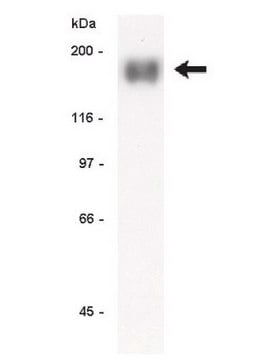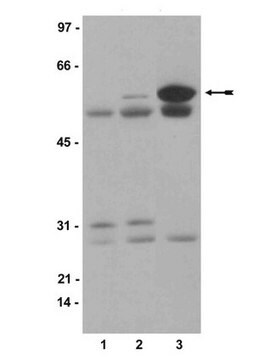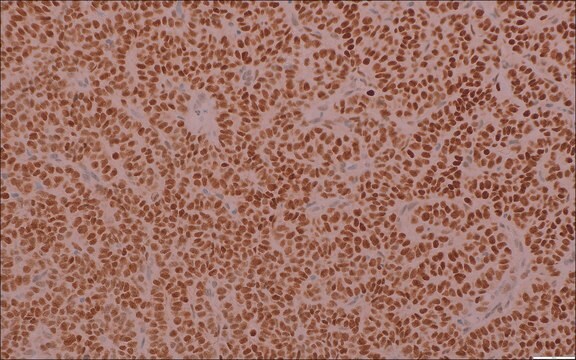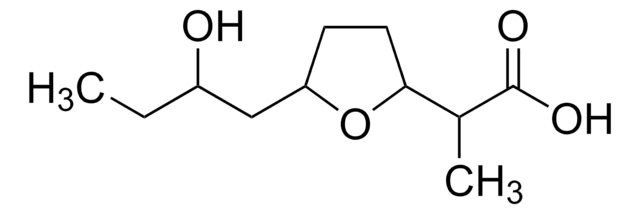04-772
Anti-Src Antibody, CT, clone NL19 | 04-772
clone NL19, Upstate®, from rabbit
Synonym(s):
Proto-oncogene tyrosine-protein kinase SRC, Protooncogene SRC, Rous sarcoma tyrosine kinase pp60c-src, Tyrosine-protein kinase SRC-1, v-src sarcoma (Schmidt-Ruppin A-2) viral oncogene homolog (avian)
About This Item
Recommended Products
biological source
rabbit
Quality Level
antibody form
culture supernatant
antibody product type
primary antibodies
clone
NL19, monoclonal
species reactivity
mouse, human, rat
manufacturer/tradename
Upstate®
technique(s)
immunoprecipitation (IP): suitable
western blot: suitable
isotype
IgG
NCBI accession no.
UniProt accession no.
shipped in
dry ice
target post-translational modification
unmodified
Gene Information
human ... SRC(6714)
General description
Specificity
Immunogen
Application
Quality
Target description
Linkage
Physical form
Analysis Note
RIPA whole cell lysates from human A431, Jurkat cells, mouse 3T3/A31 cells or rat PC-12 cells Included Positive Antigen Control: Catalog # 12-301, Non-Stimulated A431 cell lysate. Add 2.5 μL of 2-mercaptoethanol/100 μL of lysate and boil for 5 minutes to reduce the preparation. Load 20 μg of reduced lysate per lane for minigels.
Legal Information
Not finding the right product?
Try our Product Selector Tool.
Storage Class
12 - Non Combustible Liquids
wgk_germany
WGK 1
flash_point_f
Not applicable
flash_point_c
Not applicable
Certificates of Analysis (COA)
Search for Certificates of Analysis (COA) by entering the products Lot/Batch Number. Lot and Batch Numbers can be found on a product’s label following the words ‘Lot’ or ‘Batch’.
Already Own This Product?
Find documentation for the products that you have recently purchased in the Document Library.
Our team of scientists has experience in all areas of research including Life Science, Material Science, Chemical Synthesis, Chromatography, Analytical and many others.
Contact Technical Service








